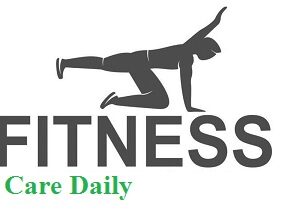Streamlining Healthcare Documentation – Enhancing Efficiency and Accuracy
The healthcare industry continually strives to improve patient care and operational efficiency. An integral part of this pursuit is enhancing the documentation process – a critical backbone for successful healthcare delivery. Streamlining healthcare documentation presents an exciting opportunity to bolster efficiency, accuracy, and, ultimately, patient outcomes.
Healthcare Documentation: The Crux of Efficient Care
It is crucial to appreciate the importance of healthcare documentation. Documentation is much more than just a regulatory necessity; it’s an essential tool that connects healthcare providers, patients, and auxiliary services. It allows for a seamless flow of vital information, offering a comprehensive view of a patient’s medical history, current health status, and treatment plan.
The Challenge: Complexity and Room for Error
Despite its importance, healthcare documentation is often fraught with complexity and potential for error. It involves multiple stakeholders, from physicians, nurses, and medical coding specialists to patients and insurance companies. Each party adds a layer of information to the documentation, increasing the scope for inaccuracies and inconsistencies.
Furthermore, the use of complex jargon and the necessity for precision make it prone to misunderstandings and oversights. Errors in healthcare documentation can lead to serious consequences, from misdiagnoses and inappropriate treatments to issues with billing and insurance reimbursements.
The Solution: Streamlining Documentation for Efficiency and Accuracy
To mitigate these challenges, healthcare providers are increasingly leveraging technology to streamline their documentation processes. From electronic health records (EHRs) to medical transcription services, they are embracing solutions that improve accuracy, speed, and usability of information.
One key area where technology is making a significant impact is diagnostic code lookup. Diagnostic codes, such as those from the International Classification of Diseases (ICD), are critical for accurately capturing patient diagnoses and treatment plans. A straightforward, efficient, and precise diagnostic code lookup tool such as online database Find-A-Code.com can vastly simplify the process of documentation. It not only minimizes human error but also ensures uniformity of data, essential for interprofessional collaboration and insurance processes.
Enhanced efficiency in documentation also means healthcare professionals can spend more time on patient care and less on paperwork. It facilitates faster, more accurate decisions, improving overall patient outcomes.
The Role of Artificial Intelligence
Another innovation reshaping the landscape of healthcare documentation is artificial intelligence (AI). AI has the potential to automate several aspects of healthcare documentation, including data entry, analysis, and error detection. For instance, Natural Language Processing (NLP), a subfield of AI, can accurately convert physicians’ voice notes into written reports, saving valuable time and reducing the chances of transcription errors.
Moreover, machine learning algorithms can analyze extensive data sets to detect anomalies or errors in documentation, flagging them for review. These AI applications can significantly improve accuracy and reliability of healthcare documentation, ultimately leading to better patient care and operational efficiency.
Training and Education: The Human Element
While technology is a vital part of streamlining healthcare documentation, the human element cannot be overlooked. Adequate training and continuous education are necessary to ensure that healthcare professionals can effectively use these digital tools and understand the importance of accurate and comprehensive documentation.
Healthcare providers must invest in regular training sessions to update their staff on the latest documentation practices and technologies. These initiatives will help foster a culture of quality, accuracy, and efficiency in healthcare documentation.
Conclusion
Streamlining healthcare documentation is a vital endeavor in the current digital age, impacting the efficiency and accuracy of healthcare services. Leveraging modern technologies, utilizing efficient tools like diagnostic code lookup, and investing in regular training means healthcare providers can greatly improve their documentation processes. This advancement not only enhances operational efficiency but also translates into improved patient care.


Leave a Reply
You must be logged in to post a comment.